SUMMARY
This is AI generated summarization, which may have errors. For context, always refer to the full article.
![[OPINION] On shared struggles and Bandung](https://www.rappler.com/tachyon/2022/03/imho-bandung.jpg)
Not long ago, the Philippines voted in favor of the United Nations General Assembly (UNGA) resolution and voiced “explicit condemnation of the invasion of Ukraine.” In the same breath, foreign ministers from the Association of Southeast Asian Nations (ASEAN) have released a joint statement expressing they are “deeply troubled by the intensifying gravity of the situation and ensuing worsening humanitarian conditions resulting from ongoing military hostilities in Ukraine.”
Not exactly a no-holds-barred condemnation, as Philippine and ASEAN diplomats fail to explicitly name the aggressor, as if wanting not to ruffle Russia’s feathers. For some Indo-Pacific observers, this erasure effectively means non-interference and “just minding one’s own business.” The same punditry insists that most ASEAN states, including the Philippines, have voted “naturally” in favor, given their vested interest in securing US military backing in the face of China’s geopolitical ambitions in the region. Elsewhere, an Australian foreign policy analyst suggests Southeast Asians often “go with the flow of international opinion, where doing so is not too costly.”
Yet, thinking intransigently with the romance of realpolitik strangulates post-colonial imaginaries. It robs our collective memory of the long, dark, tortured pasts of the Philippines under empires and autocracy. It renders less legible the possibility of pakikipagkapatiran — of forging solidarity with others in the world that have labored, and continue, to subvert the tentacles of tyranny. It submerges the lived experiences of many overseas Filipino workers and Filipino-Ukrainian families who have made Ukraine their home.
Transperipheral plights
To “everyday” Filipinos, watching death and destruction unfold half a world away may seem just that: distant, foreign, and unrelatable. But this indifference is flawed.
The idea is neither to compare the Russian regime’s war of aggression against Ukraine with our own experience of oppression, nor to (de)emphasize a certain tragedy over another, or this, or that. That would be crude. Rather, the idea is to understand Ukraine’s “very long history of being subjugated by outside powers,” and how it is enfolded with ours — lest it escapes us that, deep down, we bear the same (neo)colonial wounds.
In the Filipino psyche, pakikipagdalamhati means to feel compassion for, and embody the suffering of, Ukrainians at the hands of a so-called “great power” now intent on destroying everything and everyone they hold dear.
Standing in solidarity with Ukraine involves, for me, nursing our “historical injuries.” Wars trigger old wounds. Never must we forget the bombardment of Manila, the brutal atrocities perpetrated against thousands of Filipino civilians, and the occupation of the Philippines by Imperial Japan during World War II. Nor our centuries after centuries of colonial subjugation under the Spanish crown. Nor our tutelage under the US in the grotesque guise of “benevolent assimilation.”
More to the remembrance of these past traumas, there is that resolve to resist despotism we share with Ukrainians. One need not look far back in our (hi)stories. The common political significance of the Euromaidan revolution of 2013–14 in Kyiv and the People Power revolution of 1986 in and beyond Manila is clear: no to authoritarianism.
As Margaryta Rymarenko, a Ukrainian academic, writes in a tweet: “No country deserves to experience the brutality of dictatorship at home or abroad.” Yes, the “global struggle” for democratic ideals is in Ukraine. But the emancipatory struggle for human dignity is also somewhere else. Think about the pasts, presents, and futures of the peoples of Afghanistan, Bosnia, Burma/Myanmar, Georgia, Kashmir, Iraq, Kosovo, Palestine, Syria, Tibet, Vietnam, Xinjiang, our own country, and many other places scarred by inter-imperial imbroglios, interstate military conflicts, civil wars, or repressive regimes.
Recovering the transperipheral connectedness of struggles in the Global South and the Global East matters. It destabilizes mainstream media and political responses — often tinged with civilizational thinking, anti-Black racism, and Eurocentrism — about the presumably “western” world’s values on the line in the Russia–Ukraine war: freedom, social justice, human dignity…
Nonalignment, not neutrality
The Philippine backing of the UNGA resolution may have stirred some confusion; after all, President Rodrigo Duterte, strongman-to-strongman, has courted you-know-who in the Kremlin, as part of his regime’s foreign policy to pursue “non-traditional allies” outside North America and Western Europe. Indeed, Defense Secretary Delfin Lorenzana had initially expressed a neutral stance, believing “it’s none of our business to meddle in whatever they’re doing in Europe.”
In the 2022 presidential election debates, leading candidates are divided as to whether or not neutrality should be the country’s policy on Russia’s military aggression against Ukraine. For his part, Ferdinand Marcos, Jr. remains agnostic: “I don’t think there is a need to take a stand. We are not involved except for our nationals.”
Despite the country’s affirmative UNGA vote, the view in Malacañang seems to gravitate towards neutrality, although Mr Duterte himself acknowledges we “may have to choose sides ‘in the end’” in the dreadful event of a nuclear escalation.
It depresses me that our political debates dwell on neutrality verging on indifference. Where has the spirit of Bandung gone? Instead of choosing sides, why don’t our politicians oppose the imperialisms complicit in this ruinous conflict, whether they be American, European, Russian, or otherwise?
Seen from Manila, the anti-imperial question shouldn’t be mistaken as a zero-sum one. To enact a policy of nonalignment means “refusing to pick a side in an elite-serving great power conflict using Ukraine as its proxy.” However, this refusal does not imply turning our backs on Ukraine and Ukrainians. On the contrary, to be nonaligned today, as William Shoki and Sean Jacobs write on Africa is a Country, “means solidarity with those who stand to suffer from war most, and against war because it causes suffering for most.”
To our kababayans in a position to do so, please consider supporting the people of Ukraine here. Mabuhay ang Ukranya! – Rappler.com
Antonio Salvador M. Alcazar III is a PhD candidate in political science at Central European University in Austria and a visiting research fellow at Institut Barcelona d’Estudis Internacionals in Spain. His work is preoccupied with critiquing Eurocentrism in world politics and the European Union’s foreign (trade) relations with the global souths. @antonioalcazr
Add a comment
How does this make you feel?
![[OPINION] Suddenly, a more dangerous world](https://www.rappler.com/tachyon/2022/03/southeast-asia-ukraine-russian-war-march-3-2022.jpg?fit=449%2C449)
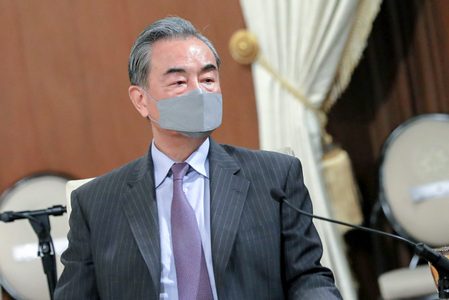
![[OPINION] Kyiv and Kharkiv through the lens of a Filipino-Ukrainian family](https://www.rappler.com/tachyon/2022/03/imho-flying-fairy-doll.jpg?fit=449%2C449)
![[In This Economy] Can the PH become an upper-middle income country within this lifetime?](https://www.rappler.com/tachyon/2024/04/tl-ph-upper-income-country-04052024.jpg?resize=257%2C257&crop=295px%2C0px%2C720px%2C720px)

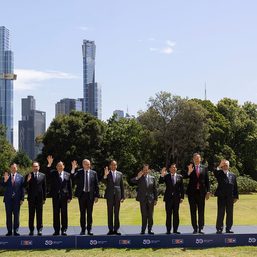
![[OPINION] Controversy over ASEAN’s ‘Swift’ week](https://www.rappler.com/tachyon/2024/03/tl-asean-swift-week.jpg?resize=257%2C257&crop=357px%2C0px%2C720px%2C720px)
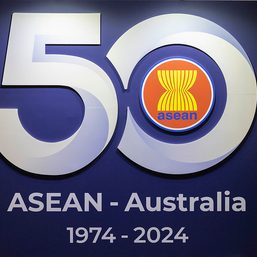
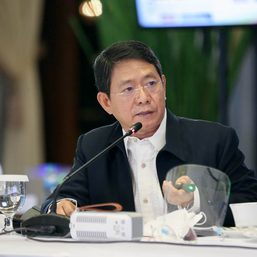
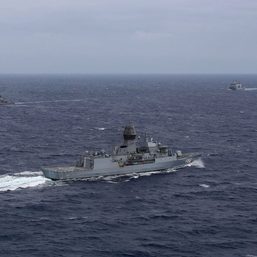
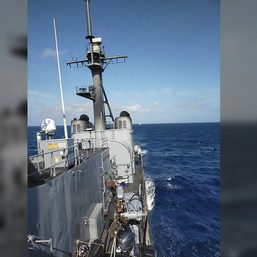
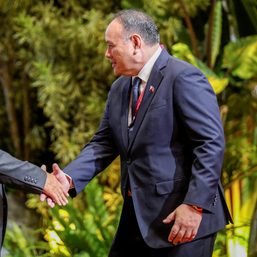
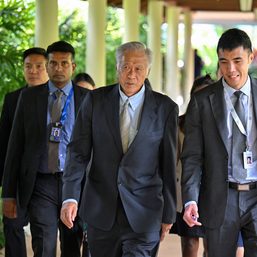
There are no comments yet. Add your comment to start the conversation.